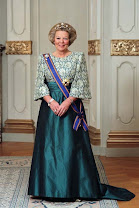WHen to Use the ArTicLes "DE" and "HET"
It is very important to know the Dutch Articles: een, de and het
The articles (LIDWOORDEN):
Here are the rules:
-de of -te: de liefde, de begeerte
-ine: de cabine, de discipline
-se: de analyse, de metamorfose
-xis: de syntaxis
-st: de gunst, de komst, de winst
-suur: de dressuur
-ij: de boerderij, de stomerij
-ing, -ling: de regering, de leerling
-eit: de universiteit, de kwaliteit
-aard, -aar, -erd: de standaard, de leraar, de mosterd
-el, -er: de beitel, de gieter
-em, -lm, -rm: de bezem, de helm, de term
-heid: de vrijheid, de waarheid
-nis: de kennis, de geschiedenis
-age: de plantage, de slijtage
-ie, -iek: de harmonie, de fabriek
-theek: de apotheek, de bibliotheek
-schap (signifying a condition): de zwangerschap, de vriendschap
2. musical notes and instruments: de do, de la, de piano (exceptions: het spinet, het clavecimbel)
3. names of diseases: de griep, de koorts
4. certain abstract nouns: de mens, de natuur
5. names of virtues and vices: de woede, de genade, de liefde
6. names of streets: de Hoofdstraat, de Erasmusweg
7. religions: de moslem, de katholiek
8. names of airlines: de KLM
9. after Meneer and Mevrouw when the profession (not the personal name) Meneer de Voorzitter, Mevrouw de Presidente
10. all plural nouns: de mensen, de meisjes, de steden
11. names of days, months and seasons: de maandag, de april, de lente
12. names of mountains and rivers: de Nijl, de Rijn
13. names of letters of the alphabet: de a, de b, de c
14. names of figures: de zeven, de honderd, de duizend
15. adjectives used as nouns and referring to a person: de rijke, de zieke
16. most monosyllabic words derived from verbs: de lach, de val, de zucht
B. THE ARTICLE "HET"
1. words ending in:
-um: het album, het gymnasium (except de datum)
-dom: het eigendom, het mensdom
-schap (signifying a function): het vaderschap, het priesterschap
-isme: het communisme, het socialisme
-aat: het resultaat
2. the infinitives (verbs): het geven, het werken
3. all diminutives: het kindje, het huisje
4. names of young animals: het kalf, het veulen
5. metals: het blik, het goud
6. minerals: het asbest, het barium
7. names of towns and cities when they are preceded by adjectives: het mooie Amsterdam, het oude Friesland
8. names of squares and parks: het Vondelpark, het Waterlooplein
9. all colors; het blauw, het rood
10. points of the compass: het noorden, het zuidoosten
* Compound Nouns always take the gender of the last noun in the compound:
het ontbijt + de tafel = de ontbijttafel
de kraam + het bed = het kraambed
NOUNS EITHER "DE" OR "HET"
de bal (ball) het bal (ball, dance)
de bos (bouquet) het bos (forest)
de doek (cloth) het doek (canvass, curtain)
de jacht (hunting) het jacht (yacht)
de pad (toad) het pad (path)
de patroon (patron, sponsor) het patroon (pattern)
de punt (point of a needle) het punt (mark, point)
de soort (species) het soort (kind, sort)
de stof (material) het stof (dust)
de veer (feather) het veer (ferry)
You will know the meaning and article ("de" or "het") when it is used in the sentence.
EXERCISE 1:
de or het
example: tafel = de tafel
1. bed 11. huis
2. stoel 12. jongetje
3. resultaat 13. boerderij
4. boek 14. avontuur
5. antwoord 15. dijk
6. raam 16. lengte
7. toets 17. betekenis
8. computer 18. hoofdpijn
9. papier 19. drum
10. drieling 20. racisme
ANTWOORDEN
If you don't know the articles, look at the dictionary.



































0 smart remarks:
Post a Comment